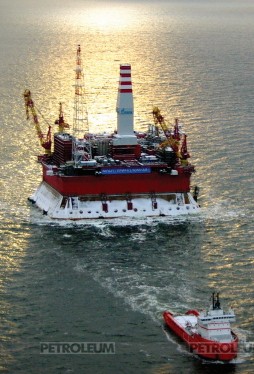Exclusive
Once Again on the Kazakhstan Content in Procurements by Subsurface Users
Miran Gazizovich Maulenov, Candidate of Juridical Sciences, Managing Partner of Olympex Advisers LLP
“Don’t find fault, find a remedy”.
Henry Ford

Despite the measures being taken by the State to develop the Kazakhstan content in procurements by subsurface users, this problem still remains topical and, in anticipation of the Kazakhstan’s accession to the WTO, is becoming an urgent imperative.
According to statistical data on the results of 2012, which is posted on the official website of the Ministry of Industry and New Technologies, the total volume of goods, works and services purchased by subsurface users operating in mining and oil and gas sectors has made up 2,987.3 billion tenge, and the local content accounted for 50.1% or 1,496.2 billion tenge. In particular, the procurement of goods amounted to 758.3 billion tenge, with the share of local content being 12.6% or 95.2 billion tenge (of which the mining sector accounted for 57.6 billion tenge, and oil and gas sector for 37.6 billion tenge).
It appears that, in 2012, a share of local content in the procurements of goods by oil & gas companies was in the region of 5%.
Taking into account that the volume of procurements in the oil and gas sector of Kazakhstan accounts, for that matter, for half of all procurements, the scale of the problem of the low level of the Kazakhstan content in the procurements by oil and gas companies are rather evident.
I would rather say nothing in this article about the reasons of these low indices since the topic of the “Kazakhstan content” is already sufficiently highlighted by both the State and private experts.
At the same time, I suggest considering international experience in order to understand how the problem of developing a local content in the procurements by oil and gas companies is resolved in other countries.
If we speak about a comparative analysis of the legislation of foreign countries, then the most popular two approaches to the regulation of the local content in procurements by subsurface users include: administrative and liberal (collaborating).
The Russian Federation and Norway can be attributable to countries that use the first approach: the legislation of these countries establishes fixed obligations with regard to local content.
For example, in Russia, the obligation of a subsurface user to purchase technical equipment, facilities and materials required for exploration, development, transportation and treatment of mineral resources from local manufacturers (at least 70% of the total cost of products purchased in each year) is established by law.
In Norway, the legislation provides for the “Agreement of Good Will” pursuant to which a subsurface user shall be obliged to appropriate at least 2% of the annual budget for the R&D works (research and development works), in which case at least 50% of these works must be performed in Norway.

In Kazakhstan, the said approach is also currently prevailing: the Law “On Subsurface and Subsurface Use” (hereinafter the “Law”) envisages that a contract must determine the obligations of a subsurface user with regard to the Kazakhstan content in terms of personnel, goods, works and services.
Since 2010, a large-scale negotiation process regarding the signing of addenda to a basic contract has been going on in order to establish fixed indices as to the volume of the Kazakhstan content, with subsurface users whose contracts do not contain these obligations. Furthermore, since the Law does not determine equal scope of obligations for everybody, it appears that there is no approved and transparent methodology of determining indices, which are required to be reached, in a particular contract.
It begs a logical question: why is the local content problem not so acute in the Russian Federation or Norway where mechanisms of the state regulation are almost identical?
From our point of view, the answer is that local suppliers in these states, that is the market, were (was) prepared for a fixed demand on part of subsurface users and, accordingly, the latter performed the obligations that the host state required them to perform in full.

We, in our turn, are in a situation where the responsibility to increase Kazakhstan content is imposed on subsurface users only and nobody analyses whether or not the domestic industry is ready for such purchase orders, in terms of both quantity and quality …
It would be sufficient to give as an example the introduction into the Law, by analogy with Norway, of the obligation for subsurface users to finance the R&D works in the amount of at least 1% of the total annual income. Moreover, such works must be performed by Kazakhstan companies.
This requirement does not actually work today since subsurface users are not interested in financing projects offered by our scientists due to absence of their practical application. But the state cannot force them to do so since the wording of the provision suggests that financing of the R&D works must have a practical application, first of all, for the subsurface user itself.
In our case, by using an administrative approach, we could have followed the suit of Nigeria whose legislation establishes that a subsurface user will have obligations to use certain the most competitive local products in percentage to the total volume of purchased products (for example, 60% of the total quantity of steel wire ropes being used).

Thus, realizing that the quality of local products is lower than that of imported products, the Government of Nigeria offers to subsurface users a segmented list of local products that will not be inferior in quality to similar foreign products.
The Nigerian approach is essentially “combined” and is at the interface between the administrative (since the obligations are established by law) and collaborative (since a certain dialogue with a subsurface user takes place) approaches.
The essence of the second approach is in its negotiation process and constructive dialogue between the State and subsurface users: such an approach is used in such countries as Great Britain and Brazil.
In Brazil, based upon the principles of partnership, the Government jointly with subsurface users and local suppliers have determined and formed three groups out of 18 segments of local products, which are mandatory for use by subsurface users, depending on the level of their ability to compete.

The Government of Brazil, represented by the national company Petrobras, assumed the obligation to provide assistance in the development of a local content for the aforesaid segments by establishing a number of service companies and providing state support to the R&D works.
However, the most illustrative example of a collaborating approach between a host country and subsurface users is, certainly, the experience of Great Britain.
In 1973, at the initial stage of development of the existing offshore oil deposits, the Government of Great Britain and the Association of Foreign Offshore Operators, which intended to offer their services, concluded a Memorandum of Understanding.
This Memorandum contained the following key provisions that were conducive to the growth of local content:
1) introduction of mandatory procedure for inspection (audit) so as to monitor procurements for an amount exceeding £100,000 (£50,000 in the technical service & repairs);

2) determination of an active role of the responsible state agency of Great Britain, i.e. the Offshore Suppliers Office (hereinafter the “OSO”), which had to analyse and reveal the reasons of the results of tender procedures of offshore operators, both positive and negative to local suppliers, and also give recommendations to raise a competitive capacity of local suppliers;
3) adoption by offshore operators of the Code of Good Practice (“the obtaining by suppliers of a full and fair possibility to participate in tender procedures of offshore operators”).
The practical interpretation of the Memorandum’s provisions was essentially expressed in the winning formula: “the greater a local content is, the easier it is for offshore operators to conduct negotiations with the Government of Great Britain in the future”.
I would also like to specifically draw your attention to the Code of Good Practice as this document constitutes an integral part of the Memorandum and requires that offshore operators take the following measures (some of these measures are listed below):
-
all prospective local suppliers can get a full package of tender documentation in English;
-
technical specification must be based on advanced industry standards of oil & gas sector or on existing national standards of Great Britain;
-
technical specification must be drawn in such a manner so as to protect local suppliers against removal from participation in tenders;
-
any amendments to the terms and conditions of holding a tender must be available to all participants of the tender;
-
all bidders must have equal and reasonable period of time for preparation of their bids;
>
-
requirements to goods, works and services must not be stricter than required;
-
an operator must inform the OSO of the conclusion of any contract with a foreign company and grant to the OSO reasonable time to appraise the reasons of the failure to conclude the contract with a local supplier;
- operators must provide information to the OSO of the forthcoming tenders.

The most important thing is that the adoption of the Code has permitted local suppliers to participate, on a pari passu and non-discriminatory basis, in tenders held by offshore operators within Great Britain.
Considering the positive international experience of Great Britain and Brazil (at present, the level of local products in these countries reaches 70–80%) and also considering that the existing administrative approach, as judged by statistics, does not work well, there arises a natural need to review the state policy in regulation of the Kazakhstan content in oil and gas sector.
Moreover, due to integration processes in our country, specifically, upon the Kazakhstan’s accession to the WTO, the matter of inadmissibility of granting preferences or more favourable development conditions to local suppliers than to prospective foreign suppliers will become important.
In summary, I would like to note that, at the initiative of national company KazMunayGas, on 25 September 2012, the “Aktau Declaration on Joint Actions” whose parties are KazMunayGas and operators of three major oil & gas projects: Karachaganak Petroleum Operating, North Caspian Operating Company and Tengizchevroil. The objective of the Declaration is the joint development of practicable mechanisms for increasing a share of the Kazakhstan content in oil & gas sector.
From our point of view, this initiative confirms that subsurface users are open for a dialogue with the State. We still need to understand as to whether or not the State itself is ready to review its existing policies in favour of the partnership?
Probably, the “win-win” principle being the principle that is widely used in business and whereby both parties win, will work in this case!
(Full article)



